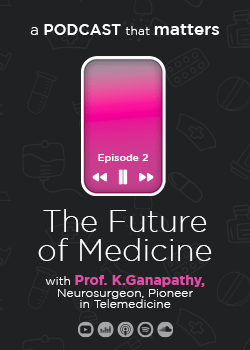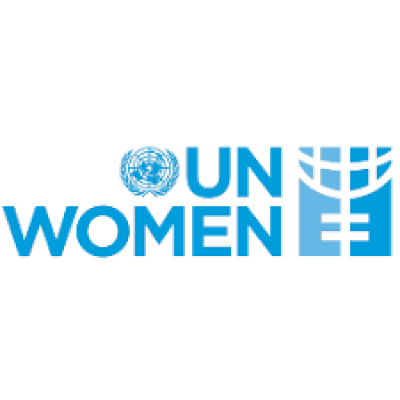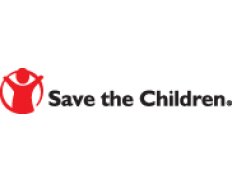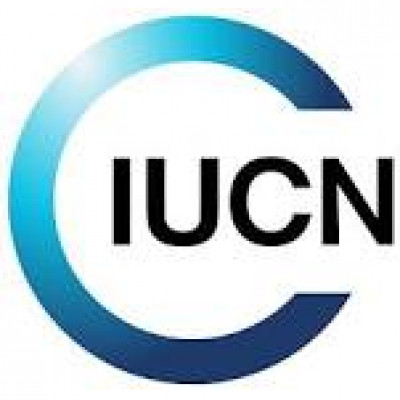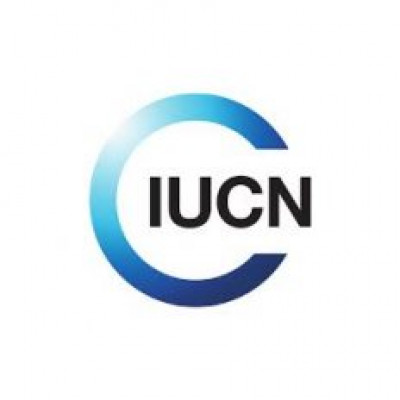Details
Description
Background
Bangladesh is exceptionally vulnerable to climate change due to its geographical settings. Climate change-induced rapid and slow onset disasters and alteration in land and water phenomena have adverse impact on lives and livelihoods of the Bangladeshi people. Particularly, the people living in coastal Bangladesh are more vulnerable compared to other regions due to climate change-induced erratic rainfall, salinity intrusion, cyclones and storm surges. Research identifies that cyclones and soil salinity are the major drivers that aggravate vulnerability of coastal communities and compels many of them to migrate in quest of safe and secure life. Hence, adaptive capacity to climate change of the coastal communities has gained importance in the growing body of literature. In contrast, natural resources of the coastal region are also threatened due to climate-induced disasters and human interventions including frequent cyclones, storm surges, overdependence on forest resources, changes in land use pattern, pollution, increased salinity level etc. For instance, the negative impacts of shrimp farming in the coastal region include mangrove destruction, soil and water quality deterioration and biodiversity loss. Deforestation and land use change due to anthropogenic activities reduce the carbon sink in the region including the Sundarbans and contribute to global climate change.
The outbreak of novel coronavirus (COVID-19) has tremendously impacted the global and national economies. Across the world, people have been hit hard by this unprecedented COVID-19 pandemic in many ways including loss of livelihoods, rise in food price, reduced purchasing power etc. From February 2020 to February 2021, within one year, food price in Bangladesh has increased by 7.3%[10]. Along with the mentioned COVID-19 led challenges, the pandemic has been exacerbating existing vulnerability dimensions that underpin social development in Bangladesh. For instance, girls and women who are already vulnerable due to social norms, gender and economic inequality, likely to bear the impact of food insecurity more than boys and men in the same household. The pandemic control measures have had a ripple effect on the front-liners of climate change. COVID-19 has amplified the vulnerabilities, thus adversely impacting the adaptive capacity to climate change of the most vulnerable coastal communities in Bangladesh. On the other hand, amid the pandemic, more than 1 million people in the nine coastal districts of Bangladesh were affected by cyclone Amphan in 2020. In the following year, cyclone Yaas affected nearly 1.3 million people in the coastal regions of the country. Both of these cyclonic events have significantly affected natural resources, croplands, fish cultivation areas, infrastructure and fresh water sources in the nine coastal districts. Population density and limited cyclone shelters and insufficient health infrastructure multiplied the COVID 19 challenges for the Bangladeshi people.
However, despite multifaceted development challenges, before COVID-19 pandemic, Bangladesh’s economy was at the height of an opportunity. If leveraged appropriately, the country could reach at the stage socio-economic development that progresses towards a resilient, green and inclusive economy[14]. Hence, along with emergency health responses, the Government of Bangladesh (GoB) has announced large economic stimulus and social protection packages of more than 1 Trillion Bangladeshi Taka (nearly 3.7% of its GDP) to protect its people and economy from the adversities of the pandemic. In particular, these packages have 19 programs of fiscal support and stimulus measures including interest subsidies for the industries, working capital for the small and medium enterprises (SMEs), social protection transfers for most vulnerable groups and emergency healthcare services funds to boost the country’s economic recovery. On the other hand, the country is a signatory to the Paris Agreement that aims to limit the global temperature rise within 1.5 degrees above pre-industrial level. In the Nationally Determined Contributions (NDC), the country has committed to reduce GreenHouse Gas (GHG) emissions by 5% below ‘business-as-usual’ by 2030. If enough technical and financial support is given by the developed countries, the country will take efforts to reduce GHG emissions by 15% below ‘business-as-usual’ by 2030. At the crossroads of the growth nexus, sustainable growth strategies are required for the country’s businesses that would ensure continued economic growth, social development and environmental protection while keeping the global commitments.
Research indicates that nearly four-fifth (70% to 80%) of the nonagricultural workforce in the country is employed in the Small and Medium Enterprises (SMEs) and the sector contributed one-fourth (25%) of Bangladesh’s GDP in 2014[17]. Considering COVID-19 as an opportunity, Bangladesh’s growth plan could be redesigned to provide a platform for such businesses to become Nature based, Low Carbon and Climate Resilient (NBLCCR) while recovering from the pandemic led crisis. In the same vein, as the country moves from response to recovery, the issues associated with the adaptive capacities of the climate vulnerable communities need to be addressed. Hence, the recovery plans should provide room for the Micro, Small and Medium Enterprises (MSMEs) in coastal Bangladesh to progress towards NBLCCR businesses for enhancing their adaptive capacity. Such a shift will also contribute to the country’s global commitments in achieving a low carbon growth while protecting its human and natural capitals. However, before taking transformative actions towards NBLCCR businesses for the coastal communities, it is essential to take a look at the NDC priority areas, drivers of environmental and livelihood degradation (drivers related to both COVID-19 pandemic and non-COVID-19) while focusing on how the adaptive capacity of climate vulnerable coastal communities are impacted, particularly for disadvantaged communities including women, elderly persons and persons with disabilities. In this context, the UNDP Bangladesh intends to conduct a comprehensive study on Post-COVID-19 recovery in Southwest Bangladesh. As part of this initiative, UNDP Bangladesh is seeking the services of a national consultant (mitigation) to conduct this study under SIDA Programme on Environment and Climate Change.
Objective of the assignment
The main objective of this consultancy service is to investigate the impacts of Covid-19 on climate vulnerable communities and MSMEs in Southwest Bangladesh. The specific objectives of the assignment are as follows -
Objective 1:
Review literature to identify Nationally Determined Contribution (NDC) priority areas that focus on promoting low carbon businesses in Bangladesh; the drivers of environmental and livelihood degradation related to the COVID-19 pandemic, as well as non-COVID-19 drivers in coastal Bangladesh; and opportunities to promote NBLCCR businesses in coastal districts with a special focus on Southwest Bangladesh.
Following questions will guide the review –
What are the NDC priority areas that focus on low carbon MSMEs in Bangladesh?
What are the COVID-19 pandemic related drivers that are responsible for environmental and livelihood degradation in coastal Bangladesh?
What are the non-COVID-19 (i.e. climate induced disasters, natural capital depletion, fragile Sundarban ecosystems, etc.) pandemic related drivers that are responsible for environmental and livelihood degradation in coastal Bangladesh?
How COVID-19 has impacted the adaptive capacities of the climate vulnerable communities in the coastal districts including Southwest Bangladesh?
How COVID-19 has impacted the MSMEs in the coastal districts including Southwest Bangladesh?
What are the challenges and opportunities for post-COVID-19 recovery through NBLCCR businesses for the climate vulnerable communities in the coastal districts?
What are the emerging needs of the climate vulnerable coastal communities in getting involved in NBLCCR businesses for enhancing their adaptive capacities?
Note: The consultant will strengthen the guiding questions later through brainstorming with the UNDP team.
Objective 2:
Develop a framework to conduct a study to explore –
How the climate vulnerable coastal communities and their adaptive capacities in Southwest Bangladesh are impacted by COVID-19 and non-COVID-19 related drivers, particularly for disadvantaged communities including women, elderly persons and persons with disabilities.
How the MSMEs are impacted by COVID-19 in Southwest Bangladesh?
The challenges and opportunities for the Southwestern climate vulnerable coastal communities in getting involved with NBLCCR businesses (small, micro and medium) for enhancing their adaptive capacities
Objective 3:
Identify intervention areas (immediate, short term and long term) to provide post-COVID-19 NBLCCR business opportunities for the MSMEs for enhancing the adaptive capacities of the most climate vulnerable coastal communities in Bangladesh.
Duties and Responsibilities
Duties and Responsibilities (Scope of Work)
The consultant will be responsible for conducting the literature review, design the study framework and tools, check data quality, clean data, analyze both qualitative and quantitative data and write the assessment report. However, the UNDP staff will collect the data at regional level. Scope of this consultancy service are as follows –
Objective 1
Conduct brainstorming sessions to refine the review questions
Undertake a secondary literature review
Write a review report
Objective 2
Development of a study framework and tools to conduct the exploratory study
Development of a methodology that includes respondents, sampling strategy and data collection techniques etc.
Conducting a pre-test to refine the data collection tools
Conducting a training on data collection for the UNDP staff
Checking the quality of data during data collection phase and cleaning the data once the data collection is done
Development of data analysis and visualization methodology including brief description of patterns, trends and variables to be investigated
Analyzing both qualitative and quantitative data that will collected by the UNDP staffs.
Objective 3
Development of a draft study report
Development of a draft technical report on the intervention areas (immediate, short term and long term) to provide post-COVID-19 NBLCCR business opportunities for the MSMEs for enhancing the adaptive capacities of the most climate vulnerable coastal communities in Bangladesh
Finalization of the aforementioned reports by incorporating the feedback and comments from the UNDP staffs
Supervision, methodology and duty station of work
The consultant will report directly to the Climate Change Specialist, UNDP Dhaka.
Duration of the assignment
The duty station will be home and field based. Consultant also needs to participate in number of virtual and in-person meetings with the UNDP staffs. 30 (Thirty) workdays (25 Days Home-based and 5 Days in Mission in the study areas in Southwest Bangladesh) over a period of 02 months from 22 November 2021 – 21 January 2022.
Competencies
Competencies
Corporate Competencies
Demonstrates integrity by modeling the UN’s values and ethical standards;
Promotes the vision, mission, and strategic goals of UNDP;
Displays cultural, gender, religion, race, nationality and age sensitivity and adaptability;
Treats all people fairly without favoritism.
Functional Competencies
Communication
Speaks and writes clearly and effectively both in English;
Listens to others, correctly interprets messages from others and responds appropriately;
Asks questions to clarify, and exhibits interest in having two-way communication;
Tailors language, tone, style, and format to match the audience;
Demonstrates openness in sharing information and keeping people informed.
Teamwork
Works collaboratively with colleagues to achieve organizational goals;
Solicits input by genuinely valuing others’ ideas and expertise; is willing to learn from others;
Places team agenda before personal agenda;
Builds consensus for task purpose and direction with team members;
Supports and acts in accordance with final group decisions, even when such decisions may not entirely reflect own position;
Shares credit for team accomplishments and accepts joint responsibility for team shortcomings.
Knowledge Management and Learning
Shares knowledge and experience;
Encourages office staff to share knowledge and contribute to UNDP Practice Areas;
Actively works towards continuing personal learning and development in one or more Practice Areas, acts on learning plan and applies newly acquired skills.
Required Skills and Experience
Requirement of Educational Qualification and Experience
Minimum Master’s degree in social science/ agriculture/ environment/ disaster management/ development studies/urban planning/ public policy and governance/ business or any discipline that is relevant to this study.
Minimum 5 years of progressive working experience in the areas of enterprise development, environment and climate change.
Experience of conducting at least 03 studies that focus on nature-based solutions, low carbon and climate resilient MSMEs in Bangladesh.
Experienced in conducting studies for UN agencies/International NGOs/ Government institutions
Capable of conducting studies in Southwest Bangladesh
Excellent analytical and conceptual skills
Excellent report writing skills in English.

